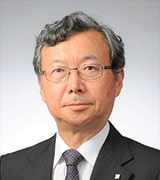Our Program
TANABE Koji
Profile

Professor emeritus, Science Tokyo
TANABE Koji graduated from School of Science, Kyoto University in 1975, and completed a doctoral program in industrial engineering at the Graduate School of Social Science and Technology, Tokyo Institute of Technology, and received PH.D.in 2003.
He served as a government official from 1975 to 2003 at the Ministry of Economy, Trade and Industry (METI), engaged mainly in technology policy, digitization of administration, statistics, and cooperation with Asian countries.
Also served as professor of Graduate School of Innovation Management, Tokyo Institute of Technology from 2005 to 2017, in charge of research and education on innovation management, standardization strategy and industry-government-academia collaboration. At present, serves as visiting professor of Hiroshima University since 2020.
Publication: "Tanabe Lab of Tokyo Institute of Technology, From the idea of realizing the joy of others" (Sairyusha,2010), "Innovation model for business revitalization" (Genshisha, 2017)
Expectations for the Program
The "Science of Science, Technology and Innovation Policy Program" has been promoted R&D projects to provide evidences needed for Science, Technology and Innovation (STI) policies.
STI policies include the following policies;
(1) Policies related to the development of Japan's STI system consisting of industries, universities, public research institutes, and the government that are key players for producing STI,
(2) Policies that promote and utilize the necessary scientific and technological innovations to solve social issues.
Both policies are extremely important for building Japan's prosperous and sustainable future.
Japan is currently in the process of transforming its STI system that had fitted to the industrial society to new STI system that corresponds to the innovative and sustainable society. This is indeed a transition phase that requires a bold shift in STI policy, therefore evidences for new policies are crucial.
We look forward to proposing innovative and thought-provoking R&D projects that will generate evidences for new STI policies.




